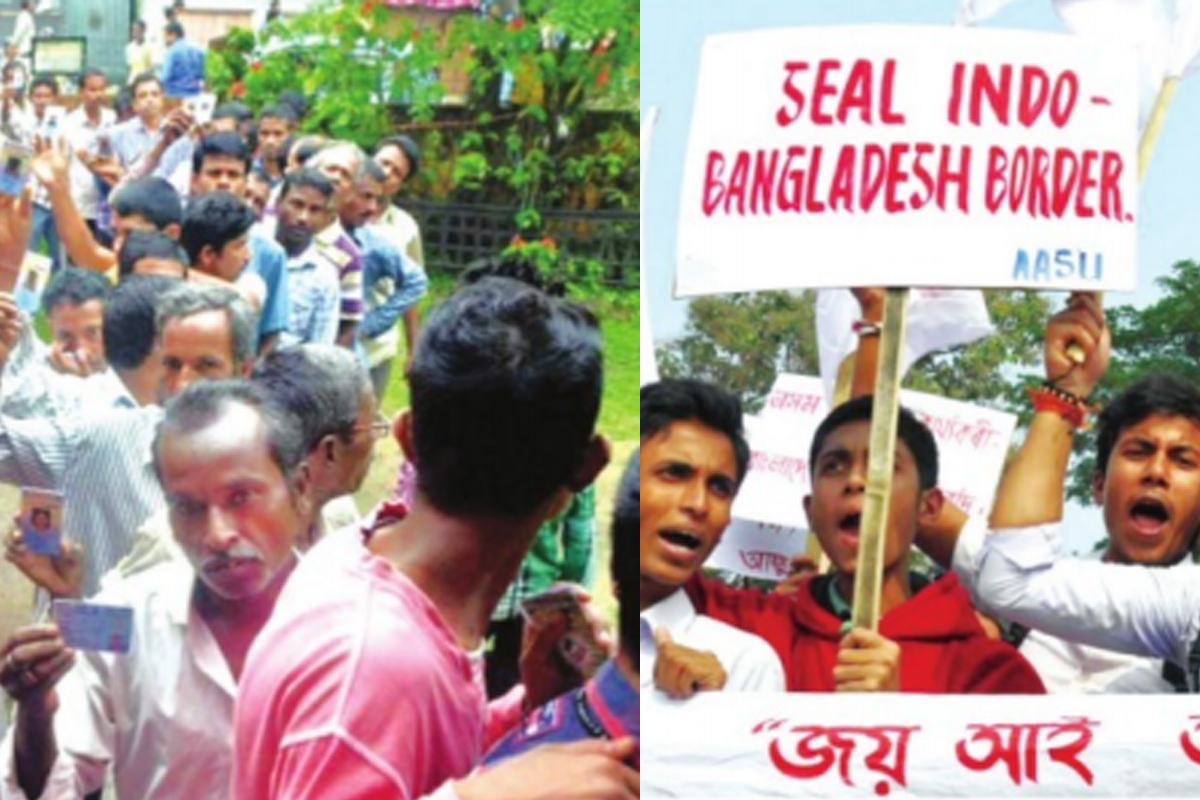PM Modi on 3-day visit to 3 states–MP, Bihar, Assam–from Sunday
According to the Prime Minister’s Office (PMO), the Prime Minister will visit Madhya Pradesh, Bihar and Assam from February 23-25.
The final draft of the National Register of Citizens in Assam, which is slated to release on 31 July, has courted controversy mainly because of its cut-off year.

PHOTO: STATESMAN NEWS SERVICE
As the date of publication of the final National Register of Citizens is approaching, the people of Assam are waiting for the moment with hope as well as anxiety. As recently reported, more than 100,000 people would not be able to include their names in the NRC and indigenous residents still have no answer about the follow-up actions against state-less citizens. They also do not know the full implications of the Centre’s initiative to amend the citizenship laws in favour of non-Muslim asylum seekers from neighbouring countries. One can make a simple forecast — Assam will witness another round of rousing debates soon after the release of the final NRC on 31 July and it would be more complicated this time as the re-elected Bharatiya Janata Party-led government in New Delhi has repeatedly announced its commitment for the Citizenship Amendment Bill. Assam’s Brahmaputra Valley became the epicentre of a public uprising last year against the bill.
It may be noted here that the NRC is a record of legal citizens and the first one in independent India was prepared in 1951 following the National Census in the same year. At that time Assam had around 80,00,000 registered citizens. From 2015, Assam is preparing another NRC under the direction and monitoring of the Supreme Court. The first NRC draft, released on 31 December 2017, comprised 19 million people out of around 30 million applicants in Assam. The final (and complete) NRC draft that was published on 30 July 2018 featured an increased number of people (2,89,83,677) who were legally living in Assam. It excluded over four million, which created a massive controversy. Later, around three million individuals applied for inclusion of their names in the NRC.
Advertisement
The NRC updation process has been inspired by the Assam Accord, which was signed on 15 August 1985 between the Centre and agitating Assam movement leaders. The historic memorandum of understanding, signed by leaders of the All Assam Students Union and Asom Gana Sangram Parishad in the presence of then Prime Minister Rajiv Gandhi, ended the six year-long agitation that had erupted in 1979 with the sole demand of deporting all illegal immigrants (read East Pakistani and Bangladeshi nationals) from the state.
Advertisement
The Accord reposed responsibility on New Delhi to detect and deport all immigrants, who had entered Assam after the midnight of 24 March 1971. In other words, the agitating leaders accepted all residents of Assam prior to the dateline as Indian nationals even though the movement was run with the spirit of 1951 as the base year (which is applicable across India) to detect illegal immigrants.
So all families (irrespective of their caste, creed, religion et al), who have been living in Assam since 1951, should be eligible for inclusion in the updated list automatically. The descendants should provide documents supporting their relationship with ancestors. Others who can produce documents that they (or their families) are living in Assam, from 24 March 1971 or before, can also claim inclusion in the NRC. Prior to the release of the final NRC by the end of this month, the authority concerned has recently published an additional draft exclusion list with the names of over 100,000 people — meaning, those people figured in the draft but were later found ineligible (because of various reasons) for inclusion in the final NRC. They are excluding the 40,07,707 people who were already out of the NRC draft, which was published on 30 July last year. However, those nationals are being given opportunities as they can lodge complaints to the NRC authority and they are expected to be addressed fast. Meanwhile, the CAB cloud has largely loomed over Assam, as President Ram Nath Kovind, in his recent address to the joint sitting of both Houses of Parliament, stated that efforts would be made to amend the Citizenship Act. In his customary address after the formation of the 17th Lok Sabha, President Kovind also added that the Union government has decided to implement the process of NRC on a priority basis in areas affected by infiltration.
Assam witnessed an uproarious situation following the Centre’s initiative to amend the Citizenship Act, 1955 with the provisions to grant citizenship to persecuted religious minorities (read non-Muslims) from Afghanistan, Pakistan and Bangladesh after due processes. The bill concerned was even passed in the 16th Lok Sabha, but got lapsed in the Rajya Sabha as the ruling BJP had no majority in the Upper House of Parliament.
While a large section of Assamese society is somehow satisfied with the NRC updation initiative, there is serious opposition from a forum of various indigenous and tribal communities, the Asom Sanmilita Mahasangha. They are protesting against the cut-off year, 1971, to detect illegal foreigners. Motiur Rahman from the forum publicly commented that the NRC updating process would serve little purpose for the locals in Assam.
Reiterating the forum’s old demand for including only indigenous families’ names in the final NRC, Rahman expressed apprehensions that nearly seven million people living in Assam would be recognised as illegal citizens of India after this exercise as they had entered the state after 1951 but prior to 24 March 1971. Taking a cue from the development, another forum also came out with a demand for a comprehensive NRC applicable to the whole nation on the basis of 1951. The Patriotic People’s Front Assam insists that not only Assam, but the entire country needs an updated NRC as “it would help promote a sense of security, development and prosperity across the populous country”.
The writer is the Guwahati-based Special Representative of The Statesman.
Advertisement